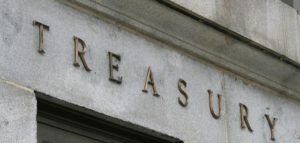The massive leak dubbed the Panama Papers has given the UK Anti-Corruption Summit on May 12 an unexpected boost. Those coming to the summit, now including the U.S., are lining up to make announcements about the steps they are taking to tackle corruption and specifically financial secrecy.
On Thursday the Obama Administration announced a series of steps to strengthen financial transparency and combat corruption and money laundering. The actions include reforms Transparency International-USA has been recommending.
 Among these steps is the finalization of the Customer Due Diligence rules by the Department of Treasury. These will enhance transparency by requiring financial institutions to identify those who actually own the companies that use their services. The goal is to know the real owner of any accounts at financial institutions so that the proceeds of corruption and other crimes are not allowed to enter the U.S. financial system.
Among these steps is the finalization of the Customer Due Diligence rules by the Department of Treasury. These will enhance transparency by requiring financial institutions to identify those who actually own the companies that use their services. The goal is to know the real owner of any accounts at financial institutions so that the proceeds of corruption and other crimes are not allowed to enter the U.S. financial system.
But is this enough? The Customer Due Diligence rules do not sufficiently capture information about those who can control an anonymous company because the definition of “control” in the rule conflates senior management and executive officers of corporate entities with the beneficial owners. Often officials named in leadership positions for anonymous companies are figureheads and control of the entity is exercised through other means – a problem highlighted by the recently released Panama Papers.
The rules also do not extend the requirement to collect beneficial ownership information of accounts established before the rules’ implementation date, creating a major gap in the information collected.
And, the rules do not require financial institutions to carry out appropriate due diligence to determine the reasonableness of the information provided to them, including to identify instances such as when kleptocrats use nominees.
What the Obama Administration is proposing is a first step but much more needs to be done.
In addition to due diligence requirements for financial institutions, Congress also needs to pass legislation to ensure that beneficial ownership information is collected upon company formation. While this may run into opposition from states where anonymous companies abound, we hope Congress will advance legislation to help combat the flow of dirty money into the U.S. and around the world.
I was surprised recently when a public library clerk asked to see my driver’s license to renew my library card in Virginia to verify my identity. I found it astonishing that I would need less information to open a limited liability company (LLC) in Delaware than renew a library card in Virginia. An LLC can open bank accounts, buy property and enter into contracts.
There are numerous examples of bribe payments being made through shell companies to avoid scrutiny. Recent examples include the VimpelCom case and the allegations against Unaoil. Anonymous companies have also been used to facilitate domestic corruption and to defraud the federal government and U.S. citizens.
Any comprehensive solution should also require gatekeepers, such as the real estate industry, involved in luxury goods purchases to conduct due diligence into buyers’ identities and the sources of their funds. Further, federal agencies should be required to collect beneficial ownership information from companies bidding for government business. That would help to address fraud and abuse by those spending U.S. taxpayer money in procurement.
When Secretary of State John Kerry arrives in London for the summit he will not be empty handed. The proof of the United States’ commitment to combating corruption will be in the steps taken by the Administration and the U.S. Congress to establish these reforms.
Image: Creative Commons, Flickr / wwworks
This article originally appeared on The FCPA Blog.















 Connect with us on Facebook
Connect with us on Facebook Follow us on Twitter
Follow us on Twitter